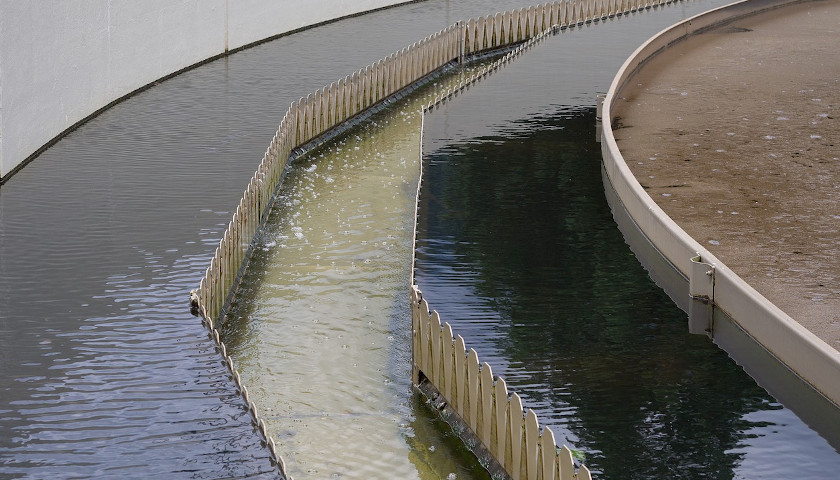Traces of COVID-19 are present in 18 percent of samples at a sewage plant in northern Stafford County, up from 9 percent in May, according to The Free-Lance Star.
“This is estimated to be about 17,800 individuals in the North Stafford sewershed that are actively infected and shedding the virus,” Deputy County Administrator Michael Smith wrote to the Stafford County Board of Supervisors. However, in an email, Smith told The Virginia Star, “The testing that is being conducted is in the experimental stage and there are no standardized and approved methods to date. This endeavor is a research project with Biobot, a firm that is working on this type of study.”
“The current results provide information about the presence of the genome in the wastewater and we are working at trying to find a way to quantify the results. We do not use these results as actual measures, and rely on the Virginia Department of Health for the actual numbers of positive cases in the Rappahannock Area Health District,” Smith cautioned.
Amy Mathers is an infectious disease physician and the associate director of Clinical Microbiology at the University of Virginia (UVA). She’s performing similar sewage analysis on individual buildings at UVA. Mathers told The Virginia Star, “There’s a lot of needed research in this field, but it does seem like it might be a good way to understand how much COVID is in a population. But we need to do more research and understand exactly what the amount of COVID means in relation to how many affected humans are in that population.”
“COVID-19 is shed in the stool of people who are infected or have recently been infected and are recovering, but no longer contagious,” Mathers said. She said one study showed COVID-19 traces in stools last up to 46 days, but she emphasized that those traces are not viable viruses.
Nevertheless, Mathers said wastewater testing is much easier to do than individual patient testing, and is less prone to be biased to one population or another. A Biobot press release adds that the company’s tests can help detect asymptomatic cases. “Wastewater provides an early warning for cases that will be diagnosed and reported in a community several days later.”
Mathers said, “[Wastewater testing] does hold great promise potentially. I think that claims about how many humans that equals in a population make me a little nervous.” Mathers added, “Using it in a vacuum to say, ‘This is exactly what is going on’ in that community I don’t think is a smart way to use it. But I think using it in the context of understanding what we know about what’s going on in a community and then looking over time at the trends, I think that is a way that this brings a lot of value.”
According to Mathers, there’s a risk that new companies entering clinical diagnostics fields may not bring traditional levels of scientific caution when evaluating results. “I just think there needs to be more validation and regulation in this area, as well as research, before we start making claims about public health across all the companies that are doing it, including us.”
“[That’s important] especially if we’re going to act on all this stuff — ‘Everybody has COVID, you should close the schools.'” Mather said, “I don’t want to put any one company [down], but we’re not all getting the same results, I can tell you that.”
– – –
Eric Burk is a reporter at The Virginia Star and the Star News Digital Network. Email tips to [email protected].




